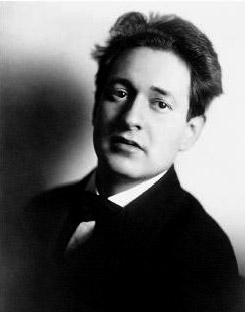It’s over fifty years since the death of Erich Wolfgang Korngold, presciently given his middle name by parents who must have been sure their child would, like the other great Wolfgang, be something of a child prodigy. Fifty years later, opinion is divided over whether Korngold was a musical genius or a reactionary who preferred to ignore musical modernism in favour of self-indulgent music, pining for a lost age.

The talented Viennese wunderkind was hailed by Mahler and Puccini as a child, and by the tender age of nineteen Korngold had already written a clutch of chamber works and had two one-act operas staged to great acclaim.
Korngold moved to Hollywood in the 1930s to write film scores for Warner Bros, a move which has perhaps contributed to his lack of esteem in critical circles: sadly, there’s still a sense that ‘great composers don’t write film music,’ an idea with which John Williams and Jerry Goldsmith might take issue… And anyone who has heard the sweeping lyricism of the Violin Concerto or the effortless handling of musical ideas in the second and third string quartets might also have something to say about Korngold’s facility for melodic invention and expressive writing.
You can make up your own minds as the Brodsky Quartet brings Korngold’s lyrical Second String Quartet to the Gulbenkian Theatre in their concert this month, along with Gershwin’s evocative Lullaby, Wolf’s sunny Italian Serenade, and Beethoven’s mighty op.132; details and tickets online here.
Here’s a foretaste of the Korngold with the lyrically dancing ‘Waltz’ of the final movement.
